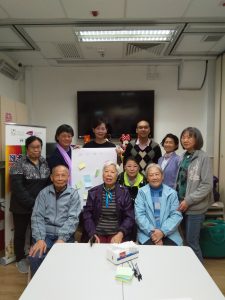Caregiver Support Model & Psycho-Education Programme



The Wan Chai Methodist Centre for the Seniors was funded by Simon K Y Lee Elderly Fund to run the “Caregiver Support Model & Psycho-Education Programme on Empowerment: Development and Validation Project”. With collaboration with City University of Hong Kong, the project adopted a scientific, comprehensive and validated working model of serving caregivers of older adults with the purpose of strengthening their personal social capital so that they can perform the caregiver role more effectively.
This project contained a series of seminars, training workshops, physiotherapist consultations, and telephone support to enhance participants’ knowledge on caregiving and facilitate their mutual assistance and support. Additionally, the project also recruited experienced caregivers and former caregivers as peer supporters to provide support and advice to new caregivers. To reduce social contacts during the pandemic, the centre arranged several online mutual support groups for carers to interact and support other participants at home.
Main target group: Both younger and older people (i.e. intergenerational)
Other target group(s): Caregivers of the older adults
Sector(s): Health, Long-term care
Other sector(s): N/A
Desired outcome for older people:
Meet their basic needs